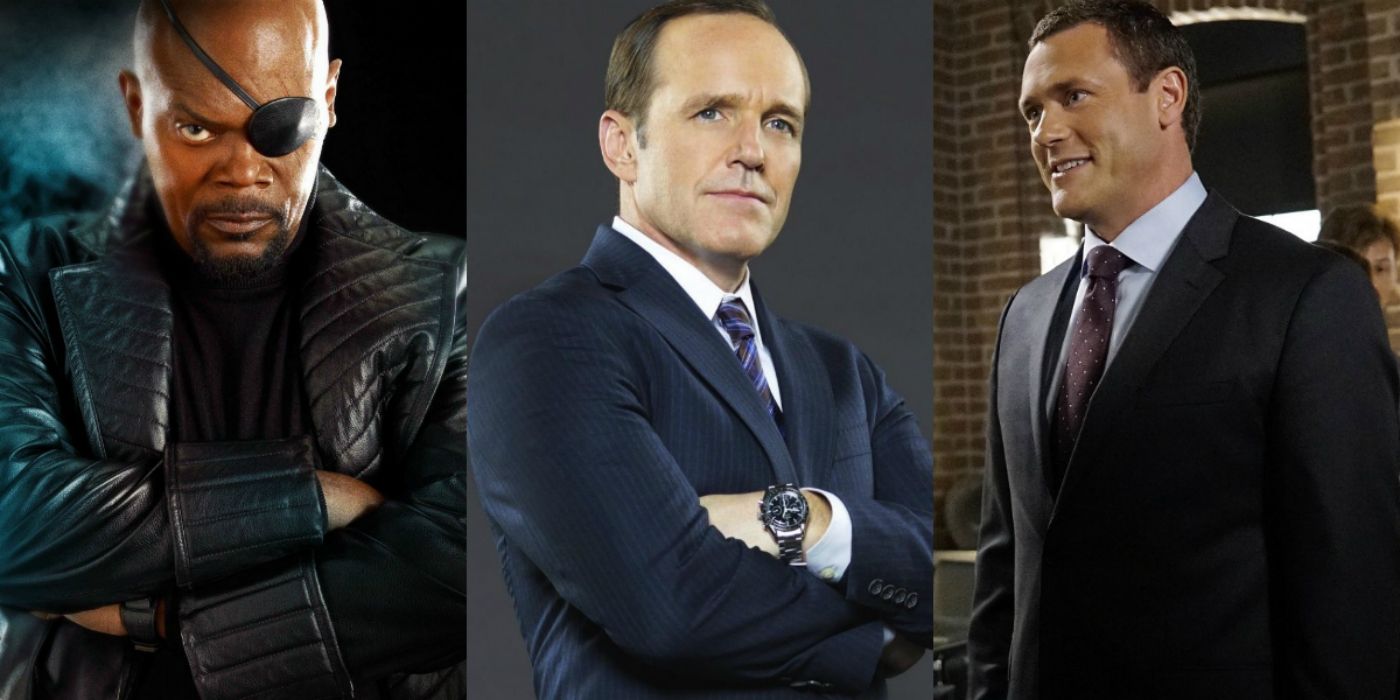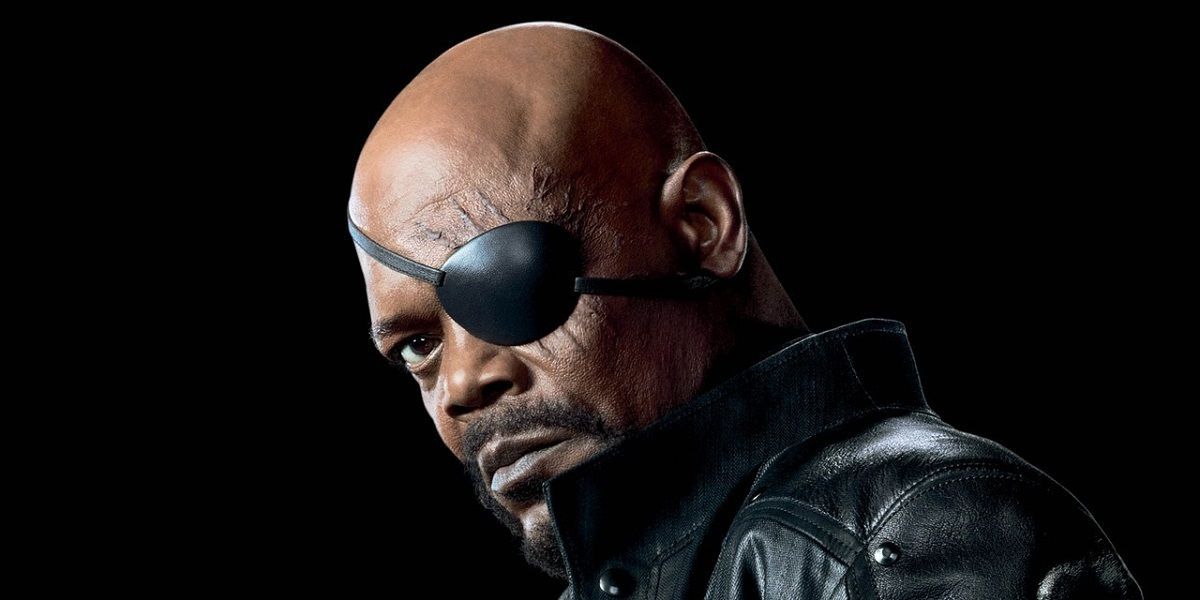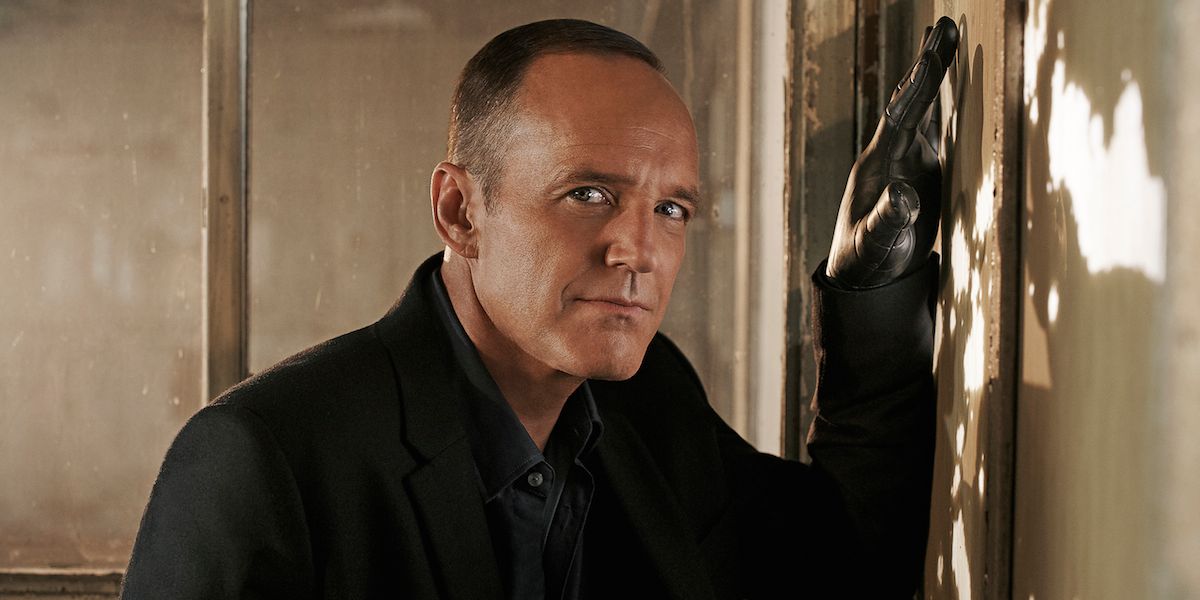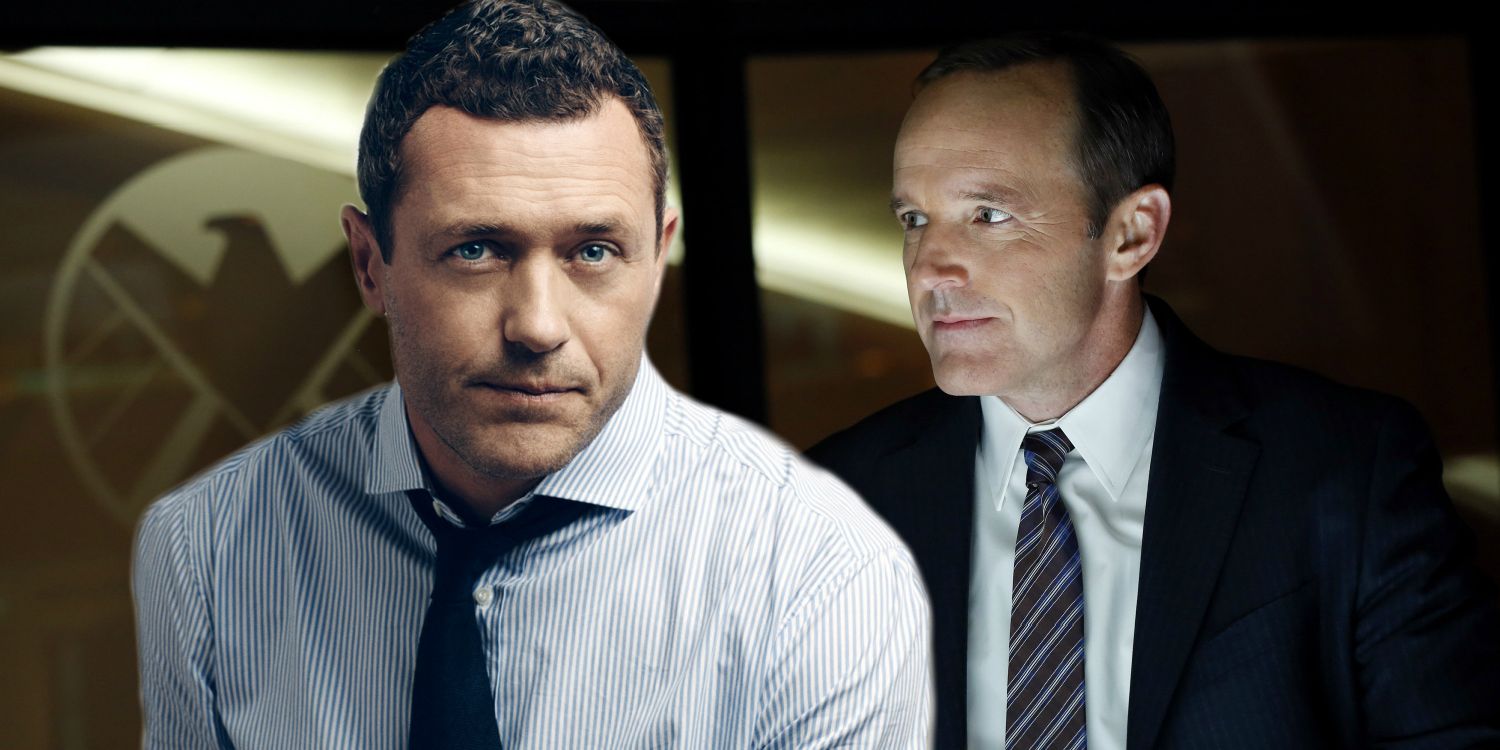[SPOILERS for those not caught up on Agents of S.H.I.E.L.D. ahead.]
-
It’s been obvious ever since the season 3 finale earlier this year that the new Director of SHIELD would be a central plot thread in season 4 of Agents of S.H.I.E.L.D. – a show that continues to insist on reinventing itself on a practically yearly basis – and the second episode of the new season, “Meet the New Boss,” only continues to play up that angle. The episode only drops a few tidbits about the brand-new character (played by Jason O’Mara), whetting viewers’ appetites for what is clearly more to come.
Despite the lack of information that has been provided so far, there’s actually enough to go on to start speculating as to the new Director's roots in Marvel Comics. Given his first name (all that we have thus far) and all the talk of the 1940s in the Congressional delegation’s tour of the Playground (nice nod to Agent Carter’s cancellation there), we have already guessed that "Jeff" is a version of Jeffrey Mace: an ordinary citizen in the ‘40s who is inspired by Captain America (Chris Evans) to first take up the identity of the Patriot and then, after Cap’s “death,” to don the Captain America uniform, as well. If this is, indeed, true, then the S.H.I.E.L.D. showrunners have opted to put a twist on the traditional version of the character, just as they’ve done for Quake and a whole host of others already.
As it turns out, there’s more we can analyze about the character, particularly when we compare him to the two previous occupants of his current office that have been depicted in the Marvel Cinematic Universe. Let’s dig into it and see what we can see, yes?
Variation on a Theme
Whereas Nick Fury (Samuel L. Jackson), the first S.H.I.E.L.D. head honcho that we encountered in the MCU (all the way back in the original Iron Man, over eight years ago now), is just an ordinary man who takes advantage of the extraordinary technology that is afforded him, both of his successors, Phil Coulson (Clark Gregg) and Jeffrey, have been more than that.
Coulson first is resurrected from a days-long death by being injected with the chemicals found in Kree blood (the Kree being an alien race that possesses an extraordinary healing factor, helping them to become the lethal interstellar warriors that they are) and then has his severed left hand replaced with a cybernetic implant, which allows him increased strength (capable of crushing a man’s torso in, as was evidenced against the traitorous Grant Ward [Brett Dalton] in last year’s mid-season finale) as well as the ability to interface with various gadgets and gizmos, such as SHIELD’s trusty Quinjet. Jeff, for his part, is an Inhuman, whose special powers seem to be invulnerability and super strength (which makes him suspiciously similar to Luke Cage, whose own series starts later this week on Netflix).
What’s interesting to note about the second and third directors is how they are pretty big variations on Agents of S.H.I.E.L.D.’s twin main themes of the Inhumans and body augmentation; Hydra has famously been made into a by-product of the Krees’ ancient presence on Earth, and the Inhumans have, in turn, lead us to Dr. Holden Radcliffe (Jack Hannah), the leading researcher in transhumanism – and the latest addition to the show’s main cast. How Phillip and Jeffrey will ultimately respond to and interact with Radcliff’s Life Model Decoy, AIDA (Mallory Jansen), is sure to make up the bulk of the fourth season’s thematic material.
Secrecy and Conspiracy
Nick Fury was famously secretive, operating on the belief that the more his organization – and all the various agents that make it up – was compartmentalized, the more successful it would be not only at its mandate of espionage, but also at Fury’s own personal mission to out-militarize the enemy, as well (hence his proclivity towards such projects as revitalizing Hydra’s WWII energy weapons [as seen in The Avengers] and the three mini-Hellicarriers that could snipe any individual on the planet [Captain America: The Winter Soldier]). Of course, such a leadership style not only pushed certain key agents away, such as Steve Rogers and, at least partially, Phil Coulson - who relinquished his command over the Kree resurrection program before becoming its last subject. However, it also allowed Hydra to secretly flourish within the agency until it exploded into public view.
Director Coulson, for his part, vowed to make his newly-rebuilt S.H.I.E.L.D. as transparent as possible (despite the occasional top-secret initiative, such as rebuilding the destroyed Helicarrier), which was an ironic imperative, given that Coulson’s tenure was during the most secretive part of S.H.I.E.L.D.’s 70-year history. And Jeffrey, thus far, seems hellbent on following Fury’s lead, making everything as classified as possible – much to our heroes’ dismay – but with the caveat of attempting to install as many safeguards as possible from allowing another conspiracy to foment and thrive.
A huge differentiating factor here is the socio-political context that each leader has served within. Given the governmental mandate for registration that the Sokovia Accords (signed during this summer’s Captain America: Civil War) has generated, all Jeffrey can do is try to keep all sensitive information as partitioned as possible – an effort made all the more imperative, given the extra spotlight that his intended role of being a superpowered symbol of American hegemony in the wake of Captain America’s disappearance adds.
Given that Coulson was able to dismantle Hydra during S.H.I.E.L.D.’s “dark” period, the Marvel Cinematic Universe seems to, thus far, be arguing that less of a public profile enables more freedom to actually accomplish the mission, whatever that may be. We’ll have to keep an eye on just what – and how – Jeff is able to get done in order to test this hypothesis out.
Relationship to the Superpowered
Director Fury developed the Index, a comprehensive listing of all enhanced individuals on the planet, replete with periodic check-ups from S.H.I.E.L.D. agents to ensure that these people didn’t use their superpowers in a way that would threaten the global security balance. Nick then wanted to take the registration one step further, forming the Avenger Initiative in order to create an unstoppable team of enhanced individuals that could be summoned when all other efforts at peacekeeping had failed.
This Initiative also resulted in the process to save Phil Coulson’s life, which is itself ironic, given his fundamental rejection of Fury’s obsession with monitoring superpowered individuals. Seeing the fear and alienation (no pun intended) that governmental tracking caused with the Inhuman population, Coulson fought tooth-and-nail to end the practice. Unfortunately, his effort was doomed to failure, given the massive outbreak of new Inhumans – along with the Avengers’ continued (and accidental) destruction across the face of the planet – that has so recently shaped public opinion. Additionally, such reservations about privacy didn’t prevent Phil from wanting to similarly use the Inhumans in an elite unit meant to be deployed in extreme circumstances (in this case, the so-called Secret Warriors, which have proven to be extremely short-lived).
What remains to be seen is Jeffrey’s stance on the issue – one that is currently unknown but whose status as an enhanced led to him landing the job of director. Undoubtedly, his attitudes – and instructions – on the matter will help to directly lead to the next security status quo that will permeate the entire MCU moving forward.
-
Agents of S.H.I.E.L.D. continues with “Uprising” Tuesday, October 11 at 10:00 pm on ABC.




